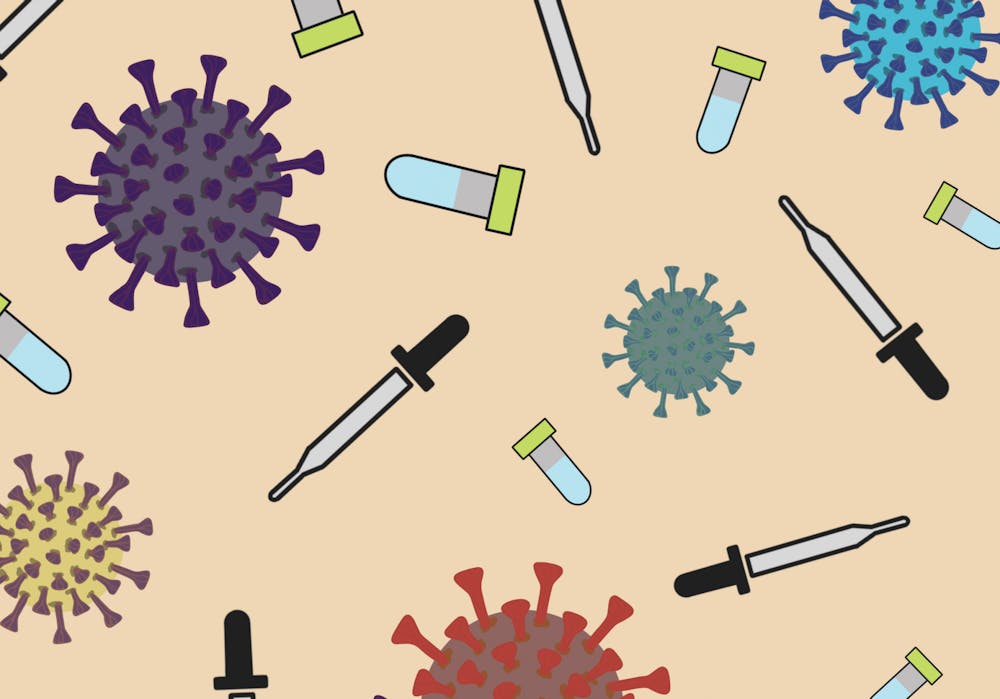While it was once thought that only factors like age and being immunocompromised increased the chances of suffering the severe impacts of the COVID-19 virus, the medical community now knows that some people are genetically more susceptible to having a harsher reaction to the virus. In order to better predict patient outcomes, a local Charlottesville biotech company recently created a blood test that can predict whether or not a patient will have a severe reaction to COVID-19.
AMPEL BioSolutions was founded in Charlottesville in 2013 by immunologist Amrie Grammer and heumatologist and immunologist Peter Lipsky with the goal of minimizing the uncertainty about whether someone will have a severe reaction to COVID-19.
This startup biotech company aims to produce personalized medical treatments for patients based on their own immune systems. In July, AMPEL developed CovGene, a test that predicts the severity of a patient’s reaction to COVID-19, regardless of the strain. The company partnered with Dr. Alexandra Kadl, pulmonary and critical care specialist at U.Va. Health, to conduct a validation study to further develop and test the efficacy of CovGene.
The new blood test that AMPEL produced detects specific genetic sequences that were found to be associated with patients having more severe cases of COVID-19.
“CovGene is a prognosis blood test, a predictive blood test designed to be implemented right after someone tests COVID-positive,” Grammer said.
The novel test utilizes polymerase chain reaction to test for a sequence of genes that can determine whether or not the patient is likely to have a severe reaction to the virus. The patient needs to be currently infected with the virus, or have some remnant of the virus within their system, in order for the test to be administered. This is because the test relies on the patient’s body’s specific reaction to the COVID-19 virus, regardless of the strain.
By predicting the severity of illness, Kadl said CovGene can help identify the populations that therapies could truly aid.
“It is really important to understand better who would benefit the most from these therapies — who are the ones that really need to be treated and who are the ones that actually don't benefit and should not be treated because we don’t want to give patients medications that are not necessary,” Kadl said.
AMPEL originally published a study in 2021 which discovered specific genetic trends within patients and their reactions to the COVID-19 virus. The reactions indicated that people with specific genetic sequences may have a natural disposition to react more sensitively to the virus compared to others. However, AMPEL needed additional data to validate their findings.
When Grammer got introduced to Kadl through mutual colleagues, they were able to create a unique collaboration in which Kadl collected data samples from her patients in the ICU to validify CovGene for AMPEL.
AMPEL and Kadl’s team both collaborated on designing the experiment, and created double-blindness with Kadl collecting the data from her patients and AMPEL analyzing the anonymous samples to reduce bias that could affect the results.
“He and I and the whole AMPEL team have had an extremely positive relationship with U.Va. Health, Dr. Alex Kadl and her whole research team,” Grammer said. “That validation study was very well planned — it was very timely.”
Kadl saw this collaboration between a biotech startup and a teaching hospital as a good experience for both parties, because they shared the common goal of helping everyone affected by the pandemic.
“It was a mutual understanding of what’s important,” Kadl said. , “I’m quite happy with how it all came along.”
With the data that was collected during the validation study, AMPEL is ready for its next steps in for putting CovGene on the market this winter. They have all of the studies and results needed to properly implement CovGene in treatment plans for COVID-19 patients.
“The analysis is ready to become public,” Lipsky said. “As with all things in the commercial arena, we’re looking for commercial partners to provide us with additional financial support in order to make this available as quickly as possible.”







